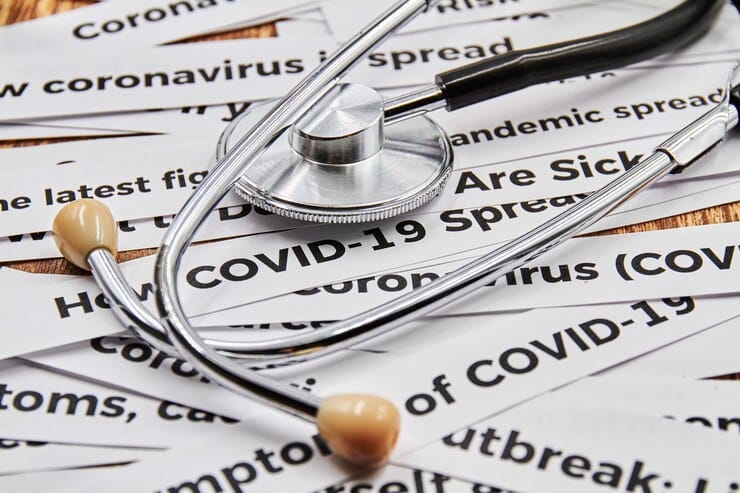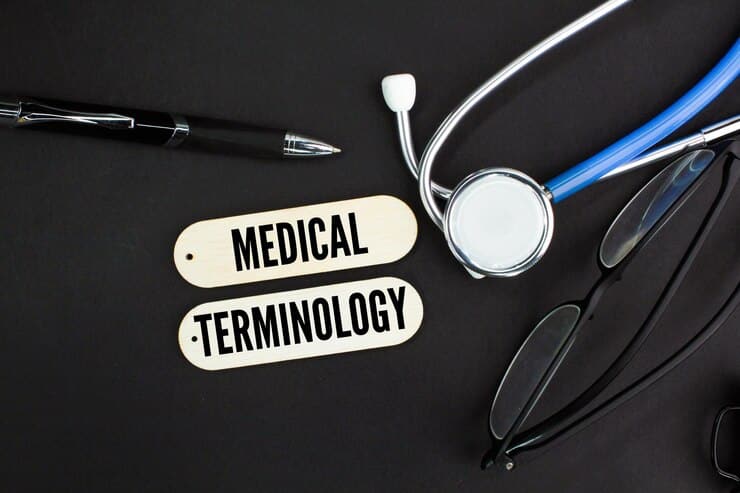In the complex world of healthcare, effective communication is essential. Whether you’re a patient seeking clarity about your health or a budding healthcare professional eager to make your mark, understanding medical terminology is crucial. This guide aims to demystify medical terminology, providing you with the foundational knowledge needed to navigate the intricate language of medicine.
What is Medical Terminology?
Medical terminology refers to the specialized language used by healthcare professionals to accurately describe the human body, its functions, conditions, diseases, and treatments. This language is essential for clear communication among medical personnel and between providers and patients.
Why is Medical Terminology Important?
- Enhances Communication: Medical terminology ensures that healthcare professionals can communicate effectively. Precise language helps avoid misunderstandings that could affect patient care.
- Facilitates Documentation: Accurate medical terminology is vital for documentation in medical records, ensuring that patient information is conveyed clearly and concisely.
- Aids in Understanding: For patients, learning medical terminology can help them understand their conditions, treatments, and the healthcare process, empowering them to take an active role in their care.
- Supports Professional Development: For those pursuing careers in healthcare, knowledge of medical terminology is fundamental. It forms the basis for further education and specialization.
Components of Medical Terminology

Medical terminology is primarily composed of three elements: roots, prefixes, and suffixes. Understanding these components is essential for decoding medical terms.
1. Roots
The root of a word is its core meaning. In medical terminology, roots often refer to parts of the body or specific conditions. For example:
- Cardi/o: Heart
- Hemat/o: Blood
- Dermat/o: Skin
- Neur/o: Nerves
2. Prefixes
Prefixes are added to the beginning of a root word to modify its meaning. They can indicate location, time, number, or status. Some common prefixes include:
- Hyper-: Above normal (e.g., hypertension means high blood pressure)
- Hypo-: Below normal (e.g., hypoglycemia means low blood sugar)
- Pre-: Before (e.g., prenatal means before birth)
- Post-: After (e.g., postoperative means after surgery)
3. Suffixes
Suffixes are added to the end of a root word to alter its meaning or to indicate a procedure, condition, or disease. Common suffixes include:
- -itis: Inflammation (e.g., appendicitis means inflammation of the appendix)
- -ectomy: Surgical removal (e.g., cholecystectomy means removal of the gallbladder)
- -logy: Study of (e.g., cardiology means the study of the heart)
- -pathy: Disease or disorder (e.g., neuropathy means nerve disease)
4. Combining Forms
Sometimes, roots, prefixes, and suffixes need to be combined using a combining vowel, usually “o.” This helps facilitate pronunciation. For example:
- Cardi/o + -logy = Cardiology (the study of the heart)
- Neur/o + -pathy = Neuropathy (nerve disease)
Common Medical Terms and Their Meanings

Here are some commonly used medical terms that beginners should familiarize themselves with:
1. Anatomy Terms
- Anatomy: The study of the structure of the body and its parts.
- Physiology: The study of the function of the body and its systems.
- Homeostasis: The body’s ability to maintain a stable internal environment despite external changes.
2. Diagnostic Terms
- Diagnosis: The identification of a disease or condition based on symptoms and diagnostic tests.
- Prognosis: The predicted course and outcome of a disease or condition.
- Symptom: A subjective indication of a disease, reported by the patient (e.g., pain, fatigue).
- Sign: An objective indication of a disease, observed by a healthcare professional (e.g., rash, swelling).
3. Common Conditions and Diseases
- Hypertension: High blood pressure.
- Diabetes Mellitus: A group of diseases that affect how the body uses blood sugar (glucose).
- Asthma: A condition that causes the airways to become inflamed and narrow, making it difficult to breathe.
- Arthritis: Inflammation of the joints, causing pain and stiffness.
4. Treatment Terms
- Therapy: Treatment to relieve or heal a disorder.
- Medication: A substance used to treat a disease or condition.
- Surgery: A procedure involving an incision with instruments to repair damage or remove tissue.
How to Learn Medical Terminology
Learning medical terminology can be an enjoyable and rewarding experience. Here are some tips to help you get started:
1. Use Flashcards
Create flashcards with medical terms on one side and their definitions on the other. This method can help reinforce your memory and improve recall.
2. Break It Down
When faced with complex terms, break them down into their components (roots, prefixes, and suffixes) to understand their meanings better. For example, the term “hypoglycemia” can be broken down into:
- Hypo- (below normal) + glyc/o (sugar) + -emia (blood condition).
3. Engage in Interactive Learning
Utilize online resources, apps, and games designed for learning medical terminology. Many educational platforms offer quizzes and interactive content that can make learning fun.
4. Join Study Groups
Collaborating with others can enhance your understanding. Join a study group or take a course where you can learn with peers and discuss challenging terms.
5. Apply What You Learn
Try to use new medical terms in conversations or written assignments. Applying the terminology in real-life contexts can help solidify your knowledge.
6. Read Medical Literature
Expose yourself to medical books, journals, and articles. This will not only improve your vocabulary but also provide context for how terms are used in practice.
Challenges in Learning Medical Terminology

While learning medical terminology can be straightforward, some challenges may arise:
1. Complexity of Terms
Many medical terms are long and complex, making them difficult to remember. Breaking down terms into their components can help manage this complexity.
2. Similar-Sounding Terms
Some medical terms may sound similar but have different meanings (e.g., “tachycardia” vs. “bradycardia”). It’s essential to pay attention to prefixes and suffixes to differentiate between them.
3. Rapidly Evolving Language
Medical terminology is constantly evolving as new discoveries and treatments emerge. Staying updated with the latest terminology is crucial, especially for healthcare professionals.
Practical Applications of Medical Terminology
Understanding medical terminology is vital in various contexts, including:
1. Patient Interactions
Patients who understand medical terminology can engage more effectively with their healthcare providers. This understanding fosters better communication and encourages patients to ask questions about their conditions and treatments.
2. Healthcare Documentation
Accurate documentation is crucial for patient care. Medical professionals use specific terminology to document patient history, symptoms, diagnoses, and treatment plans, ensuring clear communication among the healthcare team.
3. Medical Education
For students in medical fields, a solid grasp of medical terminology is fundamental. It forms the basis for further learning in anatomy, pathology, pharmacology, and clinical practices.
4. Research and Development
Researchers and scientists use medical terminology to describe their findings, communicate with peers, and publish their work. Accurate terminology is essential for the advancement of medical knowledge.
Also Read : The Future Of Medical Technology: Innovations Shaping Healthcare
Conclusion
Understanding medical terminology is an essential skill for anyone involved in healthcare, from professionals to patients. By breaking down terms into their components and utilizing various learning strategies, you can navigate the complex language of medicine with confidence. This foundational knowledge not only enhances communication but also empowers patients to take an active role in their health journey.
As the healthcare landscape continues to evolve, staying informed about medical terminology will remain crucial. Whether you’re embarking on a career in medicine or simply seeking to understand your health better, mastering medical terminology is a valuable asset.
FAQs
1. Why is it important to understand medical terminology?
Understanding medical terminology is essential for effective communication within the healthcare field, enhancing patient care, improving documentation accuracy, and empowering patients to engage in their healthcare.
2. How can I start learning medical terminology as a beginner?
You can start learning medical terminology by using flashcards, breaking down complex terms, engaging in interactive learning, joining study groups, and reading medical literature.
3. What are some common medical prefixes and suffixes?
Common medical prefixes include “hyper-“ (above normal), “hypo-“ (below normal), “pre-“ (before), and “post-“ (after). Common suffixes include “-itis” (inflammation), “-ectomy” (surgical removal), and “-logy” (study of).
4. How can I remember complex medical terms?
Breaking down complex terms into their components (roots, prefixes, and suffixes) can make them easier to remember. Additionally, using flashcards and applying the terms in context can aid retention.
5. Is medical terminology the same across different languages?
While many medical terms have Latin or Greek origins and may be similar in various languages, each language may have its specific terminology and usage. Familiarity
with the language used in your region or practice area is essential.
6. Can I find resources online to help with learning medical terminology?
Yes, there are many online resources available, including educational websites, mobile apps, and interactive courses specifically designed to teach medical terminology.
7. Are there specific medical terms I should know as a patient?
Yes, familiarizing yourself with common medical terms related to your health conditions, medications, and treatments can help you engage more effectively with your healthcare provider.
8. How often does medical terminology change?
Medical terminology can evolve as new discoveries and technologies emerge. It’s essential for healthcare professionals to stay updated on the latest terminology relevant to their fields.
9. Can I learn medical terminology on my own?
Yes, many people successfully learn medical terminology independently using books, online courses, and other resources. However, joining study groups or taking formal courses can enhance your learning experience.
10. Is medical terminology difficult to learn?
While medical terminology can be complex due to its specialized nature, breaking it down into manageable components and utilizing various learning methods can make it easier to grasp.
